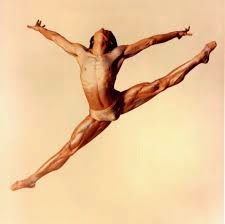Challenge. Stress-hardy people
view stress as a challenge that they can potentially overcome if only they can
understand it properly. Their habit of looking at stress as a challenge to be
overcome motivates them to address the causes of their stress in positive ways.
This active approach to stress may be contrasted with the more common approach,
where stress is viewed as an unfortunate, overwhelming or even paralyzing force
that overwhelms rather than motivates.
For a dancer, instead of letting an adversity to seem overwhelming and stressful, would
help to look at it as a challenge to overcome once they know how to approach it
fully. E.g injuries- knowing how to recover, knowing to be assertive and
diligent to rest properly, rehabilitate properly and stay strong minded,
focused and positive. This mind set helps with the healing process.
Another example: hard steps can create mental blocks and fears. This only crates a bigger barrier to the blockage where often it is just in the mind. This is when the term ‘mind over matter’ becomes very useful. To be able to accept that it will take time to improve, and improve/change one thing at a time will eventually get you towards achieving that step building up your strength physically and mentally.
Another example: hard steps can create mental blocks and fears. This only crates a bigger barrier to the blockage where often it is just in the mind. This is when the term ‘mind over matter’ becomes very useful. To be able to accept that it will take time to improve, and improve/change one thing at a time will eventually get you towards achieving that step building up your strength physically and mentally.
Personal Control. As a group,
emotionally hardy people tend to accept challenges and to work to overcome and
master them. Even when true mastery of a challenge is not possible (e.g., when
a situation is not possible to control), hardy people work to find what
possibilities do exist for mastery and pursue them. When faced with the loss of
employment, a hardy person would seize upon opportunities for exploring new
employment options rather than become depressed and demoralized.
·
Need to truely
accept challenges and work around ones can’t control. E.g. rejection for a role
in a ballet- perhaps look at other opportunities and roles that would challenge
you in other ways. Perhaps prove the directors you are fit for the role. Look
at other positive aspects in life and work separate to that dissapointment.
Commitment. Part of the reason
hardy people are able to stay in the game and persist in their coping efforts
is because as a group they are committed to an active, engaged stance towards
life. They feel that their life has purpose (whatever shape that may be), and
that purpose motivates them to actively attempt to influence their surroundings
and to persevere even when their attempts to influence their surroundings don't
appear to be working out. A person who has no purpose in life – no motivation
and no commitment – will not be able to lead a resilient life. On the other
hand, resilient people find meaning in their activities even when faced with
significant adversity precisely because they are committed to finding that
meaning; towards taking an active, problem-solving approach to life.
Having a purpose motivates a dancer! When a dancer feels like they fit in,
or have a purpose in their position with a company and perhaps with the role
they are currently doing, this inspires them to continue and work the
best they can towards a goal (technique etc.) When it feels ‘right’
I find that when you
don’t feel accepted, it is harder to keep in the game, perform at your best and
so feelings spiral down, negative emotions brood and you feel unsettled. Therefore it is so important to have a good attitude towards the
situation. Staying committed, and remembering why you are there would help.
To
develop an emotional hardiness, and deal with stress, it involves looking at
adversity as more of a personal challenge to overcome. Do it for you, and not
for someone else. Or if it involves someone else, you are the main reason
still.
"...the emotionally hardy approach to job burnout involves redefining your goals so that they are more inspiring, identifying what you can do to accomplish them, and then pursuing those goals with determination until you get some results"
Example: look at burning out at
work. Same as overtraining (mostly during rehearsals.) Emotionally hardy people
try to find root of burnout and cause, to take action to remedy it.
Dancers,
who are more sensible, are aware of what their body is telling them-notice when
it is too much to push further. Others that ignore have risk to injury, or a
negative mindset towards their approach to tough rehearsals or progressing
through a stage.
Mills, H., Dombeck, M., June 2005. Emotional Resilience, MentalHelp.net (online). Available at:
http://www.mentalhelp.net/poc/view_doc.php?type=doc&id=5791&cn=298
http://www.mentalhelp.net/poc/view_doc.php?type=doc&id=5791&cn=298


No comments:
Post a Comment